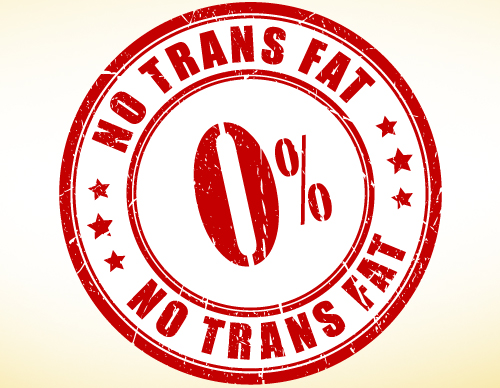|
In a move that has been hailed as an important step in nutritional policy, the Government of Canada recently enacted a ban on the use of artificial trans fats in commercial food products.

The artificial trans fat ban, which came into effect on September 17th, is the result of lobbying by concerned health advocates. The ban specifically targets partially hydrogenated oils, which are the main source of artificial trans fats and which have now been added to Health Canada’s “List of Contaminants and Other Adulterating Substances.” The goal of the ban is to better protect Canadians from heart disease. One of the leading causes of death in Canada, heart disease has been linked to a high consumption of trans fats.
Partially hydrogenated oils are created by adding hydrogen to liquid vegetable oil. This is done to give the oil a solid consistency. It also adds taste, texture, and extends the shelf life of products. The oils have been widely used in all types of baked goods, packaged foods, and restaurant foods. They are often found in yummy sweets and foods that are hard to resist, such as doughnuts, pastries, baked goods, fried foods, and snack foods.
The ban on trans fats has made it illegal for food producers to add partially hydrogenated oils to their products. This applies to all restaurants and to all food products intended for sale in Canada, even imported goods. Though it is now prohibited to add trans fats to newly produced goods, it is important to note that producers have been given a grace period of two years for any goods produced before the ban came into effect.
What this means is that, over the next two years, you may still find products on store shelves that are not trans fat-free as food producers exhaust their inventories. If avoiding trans fats is important to you, then make sure you look at product labels before you buy. For the sake of your health, you may want to take this extra step when grocery shopping before all trans-fat-containing products have left the food supply.
Studies have shown that artificial trans fats raise the levels of “bad” cholesterol (low-density lipoprotein) in the blood while at the same time lowering the levels of “good” cholesterol (high-density lipoprotein). Bad cholesterol is a risk factor for heart disease while good cholesterol protects against it. Artificial trans fats essentially clog the heart, leading to thousands of cardiac arrest deaths every year. It is estimated that the ban on artificial trans fats will save as many as 12,000 people over the next two decades.
Health Canada has required food producers to include trans fats on nutritional labels since 2002. In 2007, the government encouraged (but did not mandate) food producers to reduce the amount of trans fats in margarine. After that time, there were no other federal attempts to limit the use of trans fats in food, even after the United States enacted its own trans fat ban in 2016.
The new Canadian trans fat ban is definitely welcome by health experts. Even with the two-year grace period given to food producers, the ban will nevertheless be making an immediate and important difference for the health of Canadians.
|